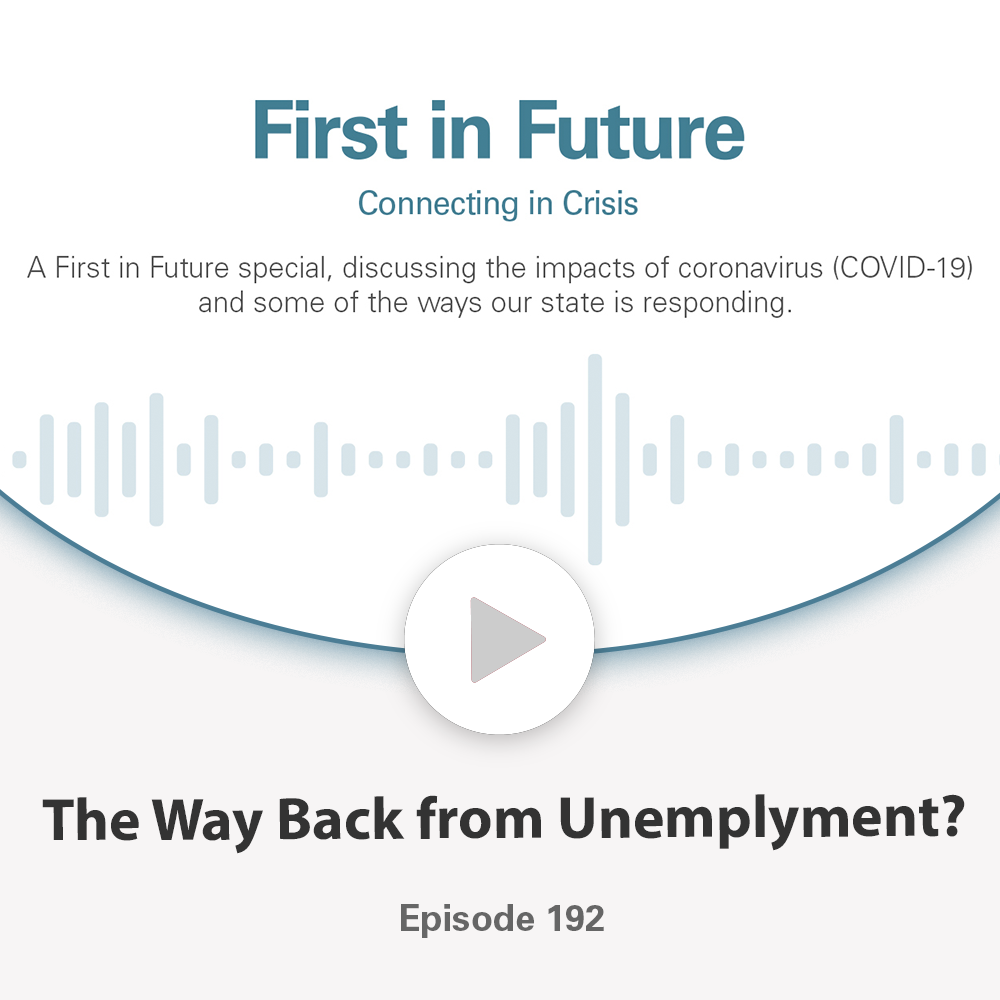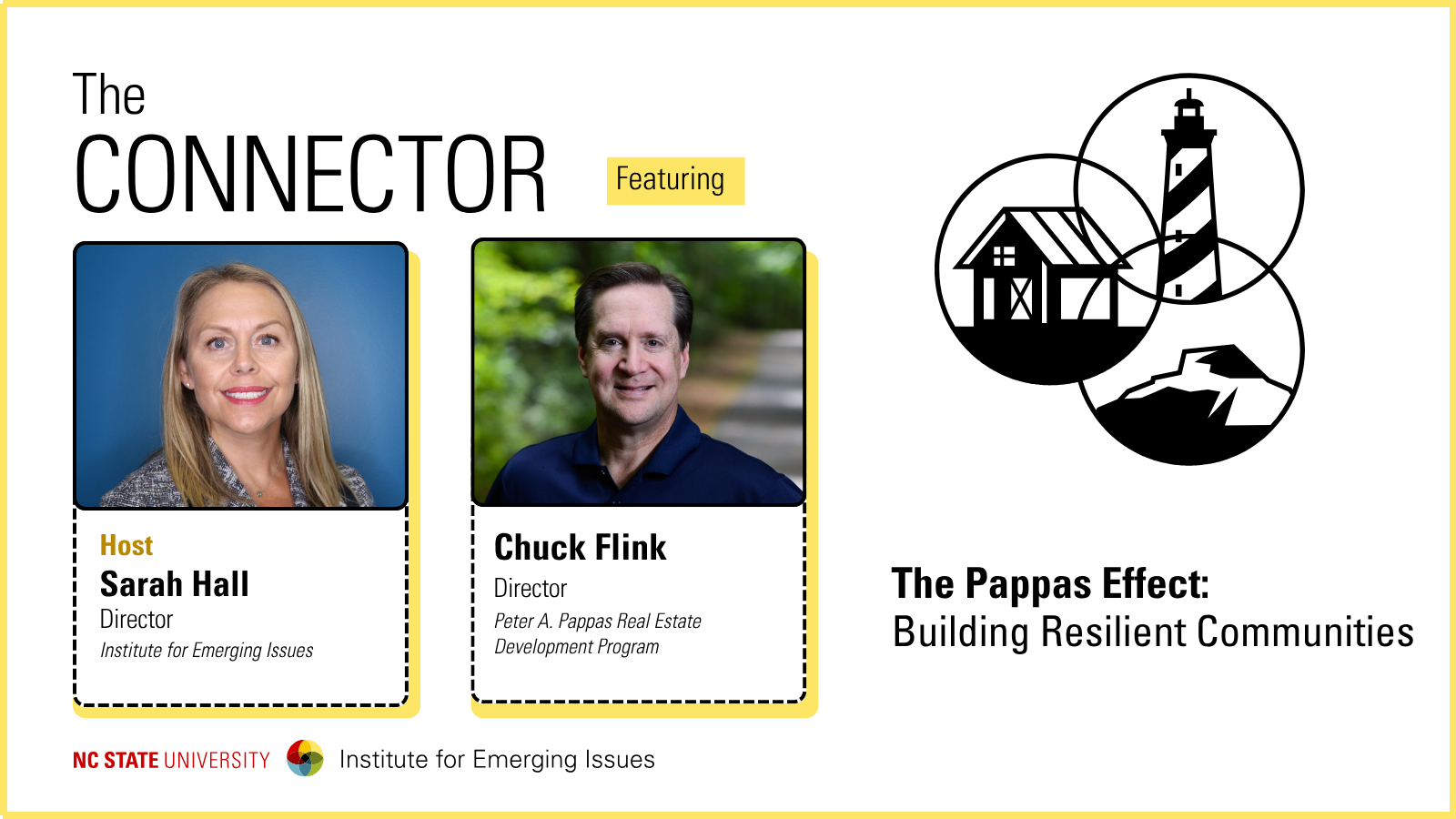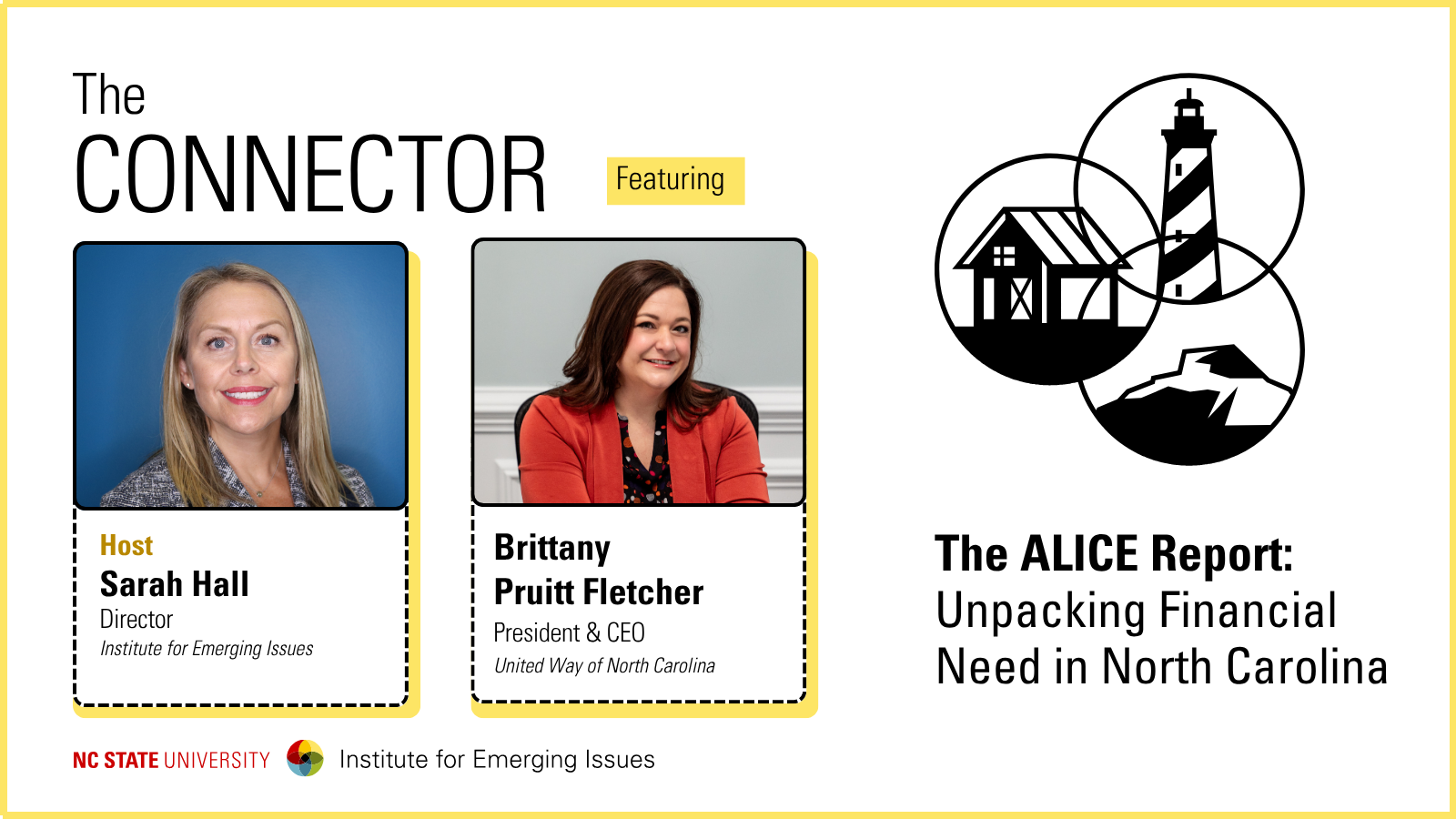The Way Back from Unemployment?

 Summary: Leslie Boney, Director of the Institute for Emerging Issues, hosts a series of virtual conversations discussing the impacts of coronavirus (COVID-19) and some of the ways our state is responding.
Summary: Leslie Boney, Director of the Institute for Emerging Issues, hosts a series of virtual conversations discussing the impacts of coronavirus (COVID-19) and some of the ways our state is responding.
Join us for this episode (The Way Back from Unemployment: Jobs, School and Service) with guests US Rep. David Price (NC 4th District), Jeff Frederick (President, NC Association of Workforce Development Boards) and Dr. Laura Leatherwood (President, Blue Ridge Community College).
*This episode of First in Future was recorded on Thursday, May 21st, and reflects information that was up-to-date at that time.*
View the slides here.
Listen to the podcast or Watch Zoom Video
Highlights & Resources
Dr. Laura Leatherwood: Community colleges have been offering quality online instruction for years. There’s no playbook for this situation but community colleges are well-positioned to help people get back into the workforce.
Jeff Frederick: The workforce development system has been accustomed to respond to economic downturns both for business/industry and displaced workers. They’ve been able to use technology and digital systems to adjust their services.
US Rep. David Price: In many ways, the virus is in charge, not us. In considering reopening, we must base it on the health situation. It’s going to be many years until a full return to employment, consumer demand & activities. Right now, the main policy response is recovery. Economists say the real danger is not doing too much, it’s doing too little. Once pandemic is contained (with a vaccine), if we don’t respond in a vigorous way, recovery could be more prolonged and painful.
- Introduced Pandemic Response and Opportunity Through National Service Act to fund 750,000 national service positions over a 3-year response and recovery period to both meet the public health need for workers and to re-deploy volunteers already in service nationally/overseas. Assumption would be to pass as part of the next recovery package.
- “[National service] is a great national resource… one that can readily be adapted to address our coronavirus needs…”
Service Year Resources:
Dr. Leatherwood:
- Many groups of people are being served by community colleges in this economy: college students at 4-year schools that are now turning to community colleges to fill in gaps; younger generation of students who are more debt-averse; adults seeking more recession-proof careers, stability, and higher wages; and small businesses.
- Promising fields for students: health care—nursing, LPN, RN, emergency management, public safety. Engineering and manufacturing as supply chain moves back to U.S. IT, technology, data analytics, software development, and science.
- “Never in the history of this state has the role of our community colleges been more important to helping NC return to the economic vitality we enjoyed two months ago.”
Jeff Frederick:
- NC Association of Workforce Development Boards website
- Our career centers are considering many things (appointment-driven, virtual, extra staffing) to prepare for the influx of people seeking services.
- Service sector has been hit very hard. Many of those folks will find a new career path. IT, cybersecurity, health care – many will flock to that.
- No one wants to risk health & safety of their people. Everyone’s going to be a little slow because no one has the answers. As we figure out more & get more comfortable, things will speed up – but that will take time.
Issues with recovery checks & PPP:
- Price: People who got checks most easily/quickly had tax forms filed and deposit instructions with their bank. Now we’re in the phase where people who didn’t have those arrangements or don’t file taxes are getting checks in the mail. There are still a few more weeks left in that time frame. If those aren’t received in the next few weeks, we need to hear about it. All the systems—unemployment, PPP, direct payments—have been overloaded.
- PPP has been a struggle – mid-course correction to set aside more funds for smaller businesses. In HEROES Act, there’s a further refinement – trying to target the right people – and an extension. If we pass it, we’ll make the terms more flexible so people are assured of loan forgiveness.
Advice for returning to employment market?
Frederick: Find resources for people looking for new careers. Local workforce board is a good place to start – bring synthesis of education, job seekers, employers, city governments, municipalities together to build strategies that help everyone.
- Categories:


